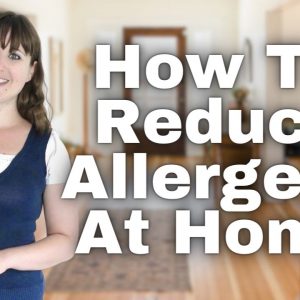
As an Amazon Associate I earn from qualifying purchases.
On the JJ Barnes Blog, I check out tips from the experts at Bed Kingdom for how to reduce allergens at home this Summer to avoid sniffles and snurts!
It’s definitely hayfever season, and that means constant snot and sniffles. I’m always trying to avoid anything that makes my kids sleep worse at night, obviously, and so to help me find out the best way to reduce allergens at home, the experts at Bed Kingdom sent over their top tips.
Reduce Allergens At Home
The experts at Bed Kingdom shared seven simple methods for reducing allergens at home to save you from symptoms such as red eyes, an obstructed nose, and a scratchy throat, and help get a better night’s sleep. Right now is an ideal opportunity to act to plan for high dust levels and decrease how much gets into your home.

 Use a sleeping mask at night
Use a sleeping mask at night
The NHS recommends wearing sunglasses with a wraparound lens during the day to keep pollen out of your eyes. Wearing a sleeping mask at night can assist with accomplishing a similar result and keeps dust from moving from your bedding at you as you rest.
Shower and change clothes after being outside
Dust gathers on us over the course of the day, sticking to our clothes, hair, and skin. In the event that you’ve been outside, shower and put on something else and shoes to wash off any allergen particles, to stop them from spreading onto bed sheets and all through the home.
Keep windows and doors closed
When the pollen count is at its highest, typically in the morning until around midday, try to keep windows and doors closed. Dust levels will more often than not drop after this point, so consider using a dehumidifier in the event that windows are left open.
Vacuum routinely and dust with a damp cloth
Allergens are embedded into carpets from the air, shoes, and pets. Be careful and vacuum slowly; too much force can scatter dust throughout the room.
Regularly clean areas that could be breeding grounds for allergens such as headboards, pillows, rugs, and hard floors. Clean fans, decor, flat surfaces, and light fixtures with a rag.
Make sure to empty your vacuum outside so that dust does not return to your home.
Dusters made of feathers can make allergies worse by kicking up dust. Instead, use a damp cloth to trap allergens and remove more pollen from the house.

 Pick the right bedding, and wash routinely
Pick the right bedding, and wash routinely
Consider investing in hypoallergenic bedding. Cotton, rayon, or engineered filaments are hypoallergenic.
Cushions produced using bird feathers, like goose or duck, can hold allergens that cause roughage fever-like side effects; Consider switching to a down alternative because the material is less likely to trap allergens and is naturally hypoallergenic.
Beds trap dust, residue, and dirt, so wash bedding regularly to reduce allergens and keep sheets feeling fresh, to give you a better night’s rest.
Wash pets
Pets, including birds, will bring allergens into your home if you don’t wash them. On the off chance that your pet heads outside, brushing them down prior to letting them back in is wise.
Trade garden plants for hypoallergenic options
Nature is in full bloom, but few houseplants might make your symptoms worse
These plants are the worst for hayfever:
- Chamomile
- Daisies
- Chrysanthemums
- Sunflowers
- Cypress
- Jasmine
- Juniper
- Wisteria
Consider low-dust choices like roses, daffodils, crocuses, lilies, or pansies.
Allergens In The Home
According to experts at Bed Kingdom, these tips will improve your night’s sleep when the dust count is high, assisting you with waking up revived instead of sluggish and stodgy. What’s more, a large portion of these ideas will cost less than a pack of allergy tablets!
Amazon and the Amazon logo are trademarks of Amazon.com, Inc, or its affiliates.








